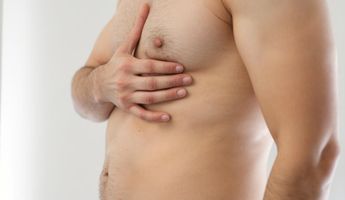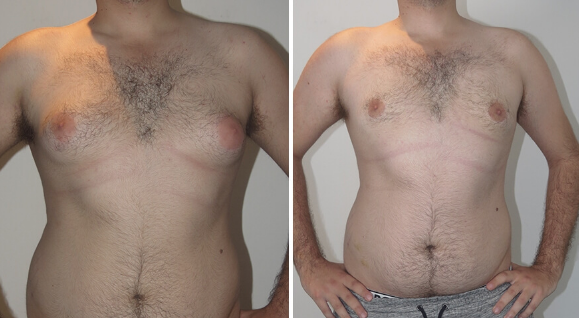Male Breast Reduction in Munich
Search and Compare the Best Clinics and Doctors at the Lowest Prices for Male Breast Reduction in Munich

Find the best clinics for Male Breast Reduction in Munich
With Medijump you can browse 2 facilities offering Male Breast Reduction procedures in Munich. The cheapest price available is $3,196 in Berlin. And for the cheapest price globally, prices start from $692 in India.
Male Breast Reduction in Germany
Price: $ 3,196
Male Breast Reduction in Berlin
Price: $ 3,196
India offers the best prices Worldwide
Price: $ 692
From 70 verified reviews
Mirca Lotz, 15 September 2020
Great clinic nice staff, definitely recommended
University Hospital of Munich (LMU), located in Professor Huber Platz, Munich, Germany offers patients Male Breast Reduction procedures among its total of 223 available procedures, across 26 different specialties. Currently, there's no pricing information for Male Breast Reduction procedures at University Hospital of Munich (LMU), as all prices are available on request only, whilst the national average price is approximately ฿130,500. There is currently a lack of information available on the specialists practicing at the Hospital, and they are not accredited by any recognized accreditations institutes
WHY US?
At Medijump, we're making medical easy. You can search, compare, discuss, and book your medical all in one place. We open the door to the best medical providers worldwide, saving you time and energy along the way, and it's all for FREE, no hidden fees, and no price markups guaranteed. So what are you waiting for?

Free

Best Price

Widest Selection

Risk-Free
What you need to know about Male Breast Reduction in Munich

Male breast reduction, also known as gynecomastia correction, is a surgical procedure to treat overdeveloped male breasts or gynecomastia – a condition in which male breasts are enlarged due to imbalance of the hormones estrogen and testosterone. The procedure is usually performed on men whose physical health is affected by the condition or men who feel uncomfortable or self-conscious about their chest. The ideal candidates for this procedure are healthy men with skin that is elastic to adjust to breast reduction.
What Does the Procedure Involve?
Male breast reduction is carried out under general anesthetic or local anesthetic with sedation. The procedure starts by making an incision around the nipple to remove fat as well as glandular tissue from the breast, as well as some excess skin. In some cases, your surgeon may also perform liposuction in conjunction with the procedure to remove fat. The final step of the procedure is closing the incisions with stitches.
How Long Should I Stay in Munich for a Male Breast Reduction Procedure?
The procedure is usually performed on an outpatient basis, meaning you can leave the hospital on the same day of the surgery. However, you should not leave Munich immediately to allow your body to recover and attend follow-up hospital checkups. Plan to stay in the country for at least 5 to 10 more days.
What's the Recovery Time for Male Breast Reduction Procedures in Munich?
The total recovery period until you can go back to your full routine can take around a month. However, some people whose jobs are not physically demanding are able to return to work as well as some of their activities in 1-2 weeks.
What sort of Aftercare is Required for Male Breast Reduction Procedures in Munich?
Your surgeon will give you detailed instructions on how to care for your surgical wounds as well as diet and exercise to avoid complications. You may need to wear a pressure garment during your recovery period to reduce bruising and swelling. To maintain the result of your surgery, make sure to maintain a healthy weight by making some healthy lifestyle changes.
What's the Success Rate of Male Breast Reduction Procedures in Munich?
The procedure is generally safe and highly successful. However, just like other types of surgery, it carries some degree of side effects and risks that you need to be aware of. The side effects and risks include skin injury, noticeable scar, permanent pigment changes in the breast, slightly mismatched nipples or breasts, loss of breast sensation, numbness, and excessive bleeding.
Are there Alternatives to Male Breast Reduction Procedures in Munich?
Male breast reduction is currently the most effective treatment to reduce enlarged male breasts. If you do not want to undergo surgery, you need to consult with your doctor about what your best options are. In some cases, your doctor may recommend liposuction to remove excess fat from your breasts, but leaving breast gland tissue intact.
What Should You Expect Before and After the Procedure
Before male breast reduction, your enlarged breast may affect you physically or you may feel very self-conscious. After the procedure, your self-esteem and self-confidence may increase significantly and any physical problems you experience before the procedure should be gone.
Whilst the information presented here has been accurately sourced and verified by a medical professional for its accuracy, it is still advised to consult with your doctor before pursuing a medical treatment at one of the listed medical providers
No Time?
Tell us what you're looking for and we'll reachout to the top clinics all at once
Enquire Now

Popular Procedures in Munich
Price on Request

Prices Start From $2

Prices Start From $556

Prices Start From $2,473

Recommended Medical Centers in Munich for Male Breast Reduction

- Interpreter services
- Translation service
- Religious facilities
- Medical records transfer
- Medical travel insurance
- Health insurance coordination
- TV in the room
- Safe in the room
- Phone in the room
- Private rooms for patients available

- Interpreter services
- Translation service
- Religious facilities
- Medical records transfer
- Medical travel insurance
- Health insurance coordination
- TV in the room
- Safe in the room
- Phone in the room
- Private rooms for patients available

- Interpreter services
- Translation service
- Religious facilities
- Medical records transfer
- Medical travel insurance
- Health insurance coordination
- TV in the room
- Safe in the room
- Phone in the room
- Private rooms for patients available

- Interpreter services
- Translation service
- Religious facilities
- Medical records transfer
- Medical travel insurance
- Health insurance coordination
- TV in the room
- Safe in the room
- Phone in the room
- Private rooms for patients available

- Interpreter services
- Translation service
- Religious facilities
- Medical records transfer
- Medical travel insurance
- Health insurance coordination
- TV in the room
- Safe in the room
- Phone in the room
- Private rooms for patients available

- Interpreter services
- Translation service
- Religious facilities
- Medical records transfer
- Medical travel insurance
- Health insurance coordination
- TV in the room
- Safe in the room
- Phone in the room
- Private rooms for patients available

- Interpreter services
- Translation service
- Religious facilities
- Medical records transfer
- Medical travel insurance
- Health insurance coordination
- TV in the room
- Safe in the room
- Phone in the room
- Private rooms for patients available
Male Breast Reduction in and around Munich
About Munich
Munich is the largest city in Southern Germany and it is one of a few places on earth where traditional and modern sit side by side, with its royal palaces and high-tech cars. Known as the ‘city of art and beer,’ this city is famous for its annual beer festival known as Oktoberfest. What most people do not realize is that Munich is also one of the world’s most famous medical tourism destination. Thanks to the famous German education system that creates skilled specialists, as well as state-of-the-art medical centers that invest in the latest medical technology, medical tourism in this city is a booming business that continues to grow at a fast rate. International patients usually travel to the city for quality rather than the price.
Popular Parts of Munich
Munich boasts a beautiful historic center, amazing German food, large parks and gardens, and beer halls packed with welcoming people. Visitors can explore numerous historical buildings, such as the Church of St. Peter and Frauenkirche. These two buildings have been around for centuries and are located in Munich’s Old Town. One of the most popular attractions in the city is Alte Pinakothek, which is an important art museum that houses over 800 works from the 14th – 18th centuries from German masters. Those who want to have a picnic, hike, simply relax or even try surfing should visit the English Garden. Other popular places include Dachau Concentration Camp, Nymphenburg Palace, BMW Museum, and Deutsches Museum.
Transport in Munich
The international airport of Munich is Munich Airport, which is the second-busiest airport in Germany in terms of passenger traffic. It serves international flights from many cities around the world, including Dubai, Bangkok, and Atlanta. Munich has a comprehensive network of public transportation that will take visitors virtually anywhere around the city. The most common transit system is the U-Bahn, which is a fast and easy underground subway system. Buses, trams, and commuter trains are also available and each has a vast network. Taxis are easy to hail, reliable, and safe. However, they are a bit pricey and Uber operates in Munich.
Visas in Munich
As a member of the Schengen Area, Germany allows citizens of several countries, including Australia, New Zealand, the US, and Poland to enter and stay in the country without a visa for up to 90 days. Citizens of other countries not listed in the visa-free entry need to obtain a visa to visit the country. Always check the requirements for Germany Visa Application before applying.
Weather in Munich
From June to August is the summer, which is a popular time to enjoy outdoor activities as the temperatures hover around 24°C. On very hot days, the temperatures can reach 30°C. Autumn (September – October) and spring (March-May) has pleasant weather with mild temperatures. Winter can be very cold, with temperatures dropping as low as -10°C.
Additional Info
- Local Currency: Euro (EUR) is the official currency. 1 EUR is approx. 1.12 USD.
- Money & Payments: ATMs are easy to find. Credit cards are not widely accepted and tipping is common practice.
- Local Language: The official language is German. Many people, particularly in tourism areas, understand English to some extent.
- Local Culture and Religion: Christianity is the largest religion in the city, followed by Islam, Buddhism, Hinduism, and Judaism.
- Public Holidays: Munich celebrates numerous holidays, including New Year’s Day and Christmas Day. It also hosts several festivals throughout the year, such as Oktoberfest in October.
Popular Searches
- Plastic Surgery in Thailand
- Dental Implants in Thailand
- Hair Transplant in Thailand
- Breast Augmentation Thailand
- Gastric Sleeve in Thailand
- Gender Reassignment Surgery in Thailand
- Laser Hair Removal in Bangkok
- Botox in Bangkok
- Dermatology in Bangkok
- Breast Augmentation in Bangkok
- Coolsculpting in Bangkok
- Veneers in Turkey
- Hair Transplant in Turkey
- Rhinoplasty in Turkey
- Stem Cell Therapy in Mexico
- Rhinoplasty in Mexico
- Liposuction in Mexico
- Coolsculpting in Tijuana
- Rhinoplasty in Korea
- Scar Removal in Korea
- Gastric Sleeve in Turkey
- Bone Marrow Transplant in India
- Invisalign in Malaysia
- Plastic Surgery in the Dominican Republic
- Tummy Tuck in the Dominican Republic
- Plastic and Cosmetic Surgery in Poland
- Rhinoplasty in Poland
- Hair Implant in Poland
- Dental Implants in Poland
- IVF in Turkey

